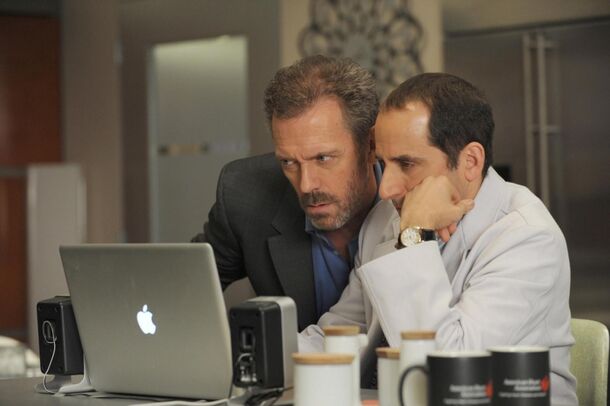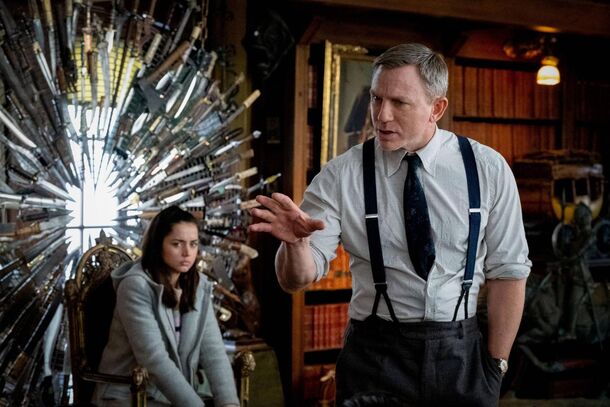Apple's Secret Rule Might Just Ruin Detective Movies for You Forever

It is just a little trick to help you identify the bad guy on the screen at first glance.
Summary:
- Apple technology is often used in movies and TV shows, but unlike other companies, Apple provides its devices for free on the condition that they are shown in the best possible light.
- Knives Out franchise director Rian Johnson revealed that Apple told him his movie's villain couldn't use an iPhone.
- The theory that only good characters use Apple technology first surfaced in 2002, when fans of the TV show 24 noticed that the villains only used Windows-based PCs.
Apple technology is frequently featured in films and TV shows, but one oddity that many people overlook is that the bad guys never use Apple devices.
Product placement in the film industry is a common practice that most tech brands use to promote their products. Typically, companies pay to have their phones or tablets featured in blockbuster movies.
But when it comes to Apple, things are different. This is an overly recognizable brand that never buys space in the frame, according to Bloomberg. Studios are allowed to utilize the company's equipment as props at no cost, but one requirement is that they be displayed as favorably as possible.

Johnson Reveals Villains Can't Hold an iPhone On Screen
That means the company has certain criteria for who can and cannot use its technology. Director Rian Johnson, known for the Knives Out franchise, said that during the filming of the first movie, the company specifically requested that the main villain not pick up an iPhone.
In general, the video was devoted to the specifics of filming one of the key scenes of his crime film, how each frame was staged, and why certain design choices were made.

But at some point, when the conversation turned to the smartphone in the hand of one of the characters, he interrupted and made a remark. According to him, for revealing this information, all directors and screenwriters who want to maintain intrigue in their films will be ready to kill him. Because Apple allows iPhones to be used in movies, but does not allow villains to hold them:
“Apple, they let you use iPhones in movies, but, and this is very pivotal, if you're ever watching a mystery movie, bad guys cannot have iPhones on camera.”
There are several scenes in Knives Out where understanding the current time is important to the plot, so characters often look at phones (iPhones, in particular) or they are shown in the frame.

But Chris Evans' Hugh is far from the most positive character, so viewers have never seen him holding an iPhone. It should be noted that the rule described by Johnson is clearly not necessary for everyone, as users have provided several counter-examples in the comments to the video. Although such cases of villains using iPhones are only possible when the gadget is not product placement (which is rare).
Fan Theory Started More Than 20 Years Ago
Rumors have long circulated that Apple carefully monitors the light in which its devices are portrayed in movies. According to the 2002 Wired article, journalists noted that in the TV series 24, all the good characters use Macbooks, while the bad guys prefer Windows-based PCs.
.jpg)
iPhone, MacBook, Apple Watch – all of these devices should be seen as part of people's everyday lives, associated with good characters and enjoyable moments on screen. So from now on, if you want to find out who the main antagonist in a detective or action movie is, use a simple rule: the villain is the one who doesn't use an iPhone.
Sources: Bloomberg, Vanity Fair, Wired
